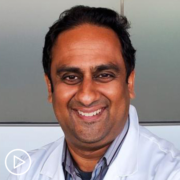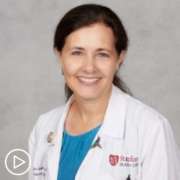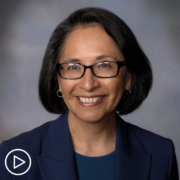Dr. Krisstina Gowin: Why Is It Important for You to Empower MPN Patients?
Dr. Krisstina Gowin: Why Is It Important for You to Empower MPN Patients? from Patient Empowerment Network on Vimeo.
Empowerment for myeloproliferative neoplasm (MPN) patients is a vital part of their care, but how can providers help with this? Dr. Krisstina Gowin from the University of Arizona shares key ways that she helps empower her patients and explains some reasons why patient empowerment is important in their care.
See More from Empowering Providers to Empower Patients (EPEP)
Related Resources:

|

|

Dr. Ana Maria Lopez Why Is It Important for You to Empower Patients |
Transcript:
Dr. Krisstina Gowin:
I think the first key to empowerment is education. And so anytime I meet a patient, I spend a significant amount of time really making sure they understand their disease and what are the treatment goals, and how do we best achieve those together? And I think for MPNs in particular, that I want them to understand that, yes, we want hematologic response, we want to control your blood counts and your numbers, we want to reduce those thrombotic complications, we want to control your symptom burden, so so important, your quality of life and symptom burden is part of the disease management.
And so I want them to understand what is symptom burden, and how is it measured, and how do we best achieve chronologic measurements? Do they do that at home? Is it best in clinic, are they going to be journaling? So symptom burden and measuring, and then the other is wellness and the management of cardiovascular risk factors, and so education around all of those for my MPN patients.
And then why is it important while it’s important because we want our patients to feel empowered, we want to feel like they are driving the bus and contributing to their own survivorship and wellness, and so how do they best do that is through education and then again, getting the tools they need to really navigate their journey in the most precision and personal, personalized way as possible, and so that’s really my strategy is education and empowerment.



